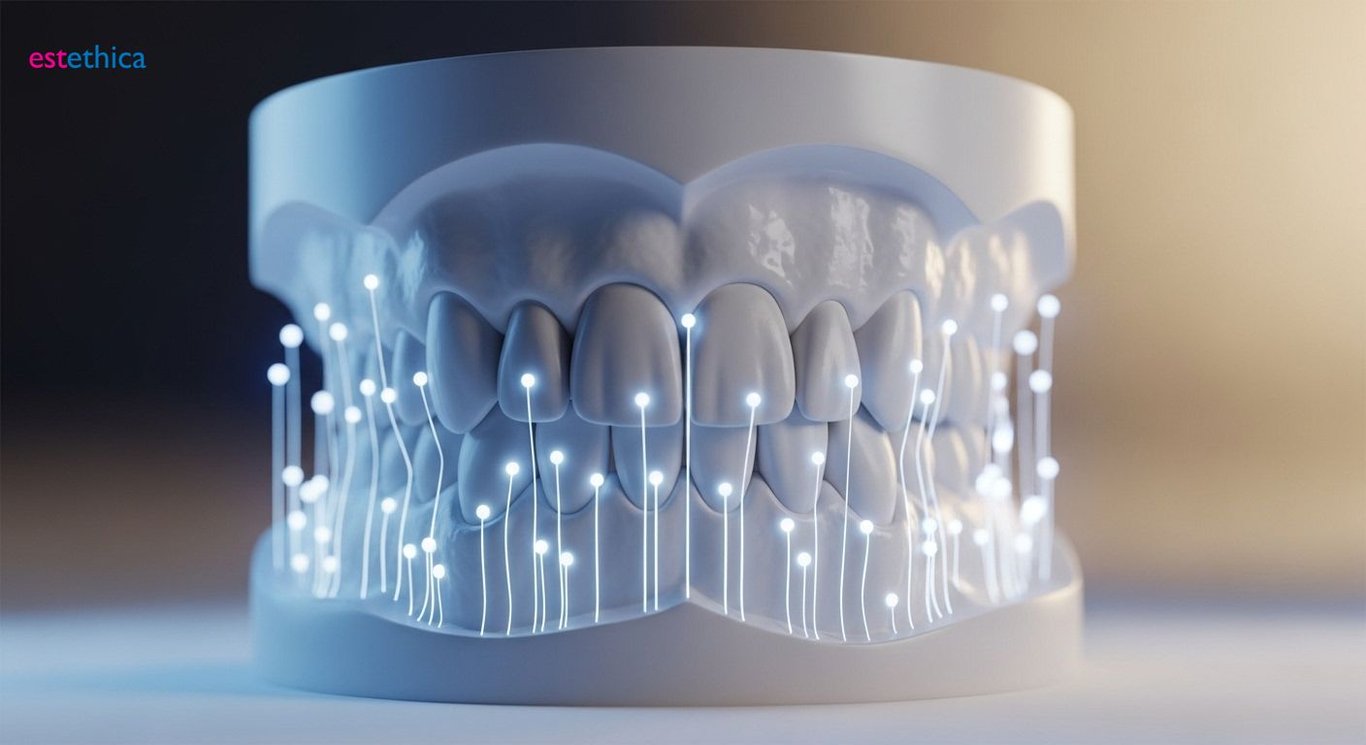Dental SEO Secrets: Skyrocket Your Practice with Keywords
Discover the importance of dental-specific SEO keywords to reach and engage with potential patients effectively.
In the competitive world of dental services, attracting potential patients requires more than just top-notch care. Leveraging the power of SEO can transform how your dental practice appears in search engine results. Understanding and integrating effective keywords into your dental website is essential for maximizing your reach and influence online.
Decoding Dental Keywords: A Beginner's Guide
Understanding the Basics of Dental SEO Keywords
Every successful SEO strategy starts with comprehensive keyword research, especially for dental practices aiming to enhance their online visibility. Identifying relevant keywords is crucial for attracting potential patients actively searching for dental services. For newcomers to digital marketing, understanding the nuances of keyword selection can significantly impact the effectiveness of their SEO efforts. Dentists should focus on keywords that align with the treatments they offer, such as 'clear aligners' and 'invisible braces,' to capture the attention of individuals seeking orthodontic solutions. Additionally, understanding 'how to find the right keywords' involves analyzing key metrics like search volume and keyword difficulty. This analysis ensures that your content not only ranks high in search engine results but also avoids overly competitive keyword spaces, maximizing your chances of attracting targeted traffic.
Effective keyword research also involves understanding the intent behind search queries. Are users looking for informational content, or are they ready to book an appointment? Tailoring your keywords to match user intent can dramatically improve your conversion rates. For instance, someone searching for "teeth whitening cost" is likely further along in the decision-making process than someone searching for "what is teeth whitening." By focusing on a mix of informational and transactional keywords, dental practices can attract a wider audience and guide potential patients through the sales funnel. Furthermore, regularly updating your keyword strategy is essential to stay ahead of evolving search trends and maintain a competitive edge in the digital landscape. Using tools like Google Keyword Planner and SEMrush can provide valuable insights into keyword performance and emerging opportunities.
Essential Steps for Effective Keyword Analysis
- Identify Core Services: Begin by listing all the dental services your practice offers, such as cosmetic dentistry, orthodontics, and general dentistry.
- Use Keyword Research Tools: Utilize tools like Google Keyword Planner to discover relevant keywords, analyze their search volume, and assess competition.
- Analyze Search Intent: Determine whether users are seeking information, comparing options, or ready to book an appointment to tailor your content accordingly.
Key Elements of a Successful Keyword Strategy
- Relevance: Ensure your chosen keywords directly relate to the dental services you provide and the needs of your target audience.
- Search Volume: Prioritize keywords with a sufficient search volume to drive traffic to your website and increase visibility.
- Competition: Balance high-volume keywords with lower-competition options to improve your chances of ranking well in search results.

Keyword Analysis: Finding Your Dental Niche Online
Leveraging Keyword Analysis for Niche Dental Services
Keyword analysis is essential for dental practices looking to carve out a specific niche in the competitive online landscape. By identifying and targeting the right keywords, dental professionals can attract patients seeking specialized treatments. For example, focusing on terms like 'clear braces' and 'metal braces' can help orthodontists connect with individuals interested in orthodontic solutions. These terms serve as Latent Semantic Indexing (LSI) keywords, which are closely related to the primary search terms and enhance the relevance of your content. Additionally, understanding the intent behind these searches—whether informational or transactional—allows you to tailor your content to meet specific user needs, improving engagement and conversion rates.
Tools like Google Analytics provide valuable insights into which 'SEO Keywords' are driving traffic to your site and how users are interacting with your content. This data-driven approach enables you to refine your keyword strategy and optimize your website for better search engine rankings. For instance, if you notice a high volume of searches for 'invisible braces' with 'informational intent,' you can create blog posts or articles that address common questions and concerns about this treatment option. This targeted content not only attracts potential patients but also establishes your practice as a trusted authority in the field. By continually analyzing and adapting your keyword strategy, you can ensure that your dental practice remains visible and relevant to your target audience.
Strategies for Effective 'Keyword Analysis'
- Identify Niche Services: Determine the specialized dental services your practice offers, such as pediatric dentistry, cosmetic dentistry, or implant dentistry, to focus your keyword research.
- Use Advanced Tools: Employ tools like SEMrush or Ahrefs to uncover long-tail keywords and analyze competitor strategies, providing a deeper understanding of the market.
- Monitor Performance: Regularly track the performance of your chosen keywords using Google Analytics to make data-driven adjustments and optimize your SEO efforts.
Utilizing LSI Keywords to Enhance SEO
- Expand Keyword Reach: Incorporate LSI keywords related to your primary terms to broaden your content's relevance and attract a wider audience.
- Improve Content Depth: Use LSI keywords to provide comprehensive information about your services, addressing various aspects and related topics.
- Boost Search Rankings: Enhance your website's SEO by naturally integrating LSI keywords, signaling to search engines that your content is thorough and relevant.

SEO Keywords: Optimizing Your Dental Website for Search Engines
The Role of 'Keyword Analysis' in Dental SEO
In the realm of SEO, 'keyword analysis' is crucial for optimizing dental websites. By understanding the 'search engine optimization' intricacies, you can effectively incorporate 'target keywords' into your content. Keywords like 'best keywords for my website' offer a roadmap for what potential patients are exploring, ensuring that your site captures their attention and turns clicks into appointments. Dental practices that prioritize SEO keyword strategies often see a notable increase in organic traffic and patient engagement. For example, a dentist specializing in 'clear aligners' can use keyword analysis to identify related search terms such as 'invisible braces' and 'clear braces cost' to reach a broader audience. This strategic approach not only enhances visibility but also helps attract patients who are actively seeking specific dental solutions.
A well-executed 'SEO Keywords' strategy involves more than just identifying popular search terms; it requires understanding the intent behind those searches. Are potential patients looking for information about a specific procedure, or are they ready to schedule a consultation? Tailoring your content to match user intent can significantly improve your conversion rates. For instance, someone searching for 'how do I choose keywords' is likely in the early stages of research, while someone searching for 'keywords agency' may be ready to hire a professional. By addressing both informational and transactional queries, dental practices can capture a wider range of potential patients. This comprehensive approach ensures that your website serves as a valuable resource for individuals at every stage of their decision-making process, ultimately driving more appointments and revenue.
Strategies for Integrating Dental 'SEO Keywords'
- Identify High-Value Keywords: Use tools like Google Keyword Planner to discover keywords with high search volume and relevance to your dental services.
- Create Targeted Content: Develop blog posts, articles, and service pages that address specific keywords and user intents, providing valuable information and solutions.
- Monitor and Optimize: Regularly track the performance of your keywords using Google Analytics to make data-driven adjustments and improve your SEO strategy.
Benefits of Effective 'Keyword Analysis'
- Increased Visibility: By targeting relevant keywords, your website can rank higher in search engine results, attracting more organic traffic.
- Improved Patient Engagement: Tailoring your content to match user intent can enhance engagement and encourage potential patients to explore your services.
- Higher Conversion Rates: By addressing both informational and transactional queries, you can guide potential patients through the sales funnel and increase appointment bookings.

Target Keywords: Crafting a Dental SEO Strategy That Works
Maximizing Impact with Strategic 'Target Keywords'
Crafting a robust dental SEO strategy centers around 'target keywords' that are strategically placed across your website. By naturally integrating words like 'braces' into blog posts and service pages, your site can climb search rankings. Effective use of 'SEO Keywords' ensures that your content resonates with potential patients actively searching for dental solutions. For instance, a dental practice can focus on 'dental keywords' like 'clear aligners' to attract individuals seeking discreet orthodontic treatments. By strategically using these terms, you enhance your website's visibility and attract more qualified leads. Integrating 'keyword analysis' insights into your content strategy ensures that you are consistently addressing the needs and interests of your target audience, leading to increased engagement and conversions.
Engaging content that reflects seasonal and trending keywords ensures continuous traffic and engagement. Using terms like 'summer keywords' in seasonal promotions or 'AI Keywords' in blog posts about modern dental technology can attract a wider audience. For example, during the back-to-school season, promoting orthodontic services with 'back to school keywords' can capture the attention of parents looking for 'metal braces' or 'invisible braces' for their children. By aligning your content with current trends and seasonal themes, you keep your website fresh and relevant, attracting both new and returning visitors. This proactive approach not only boosts your search engine rankings but also establishes your dental practice as a forward-thinking and patient-focused provider.
Best Practices for 'Target Keywords' Integration
- Strategic Placement: Naturally incorporate target keywords into your website content, including titles, headings, and body text, to improve search engine rankings.
- Content Relevance: Ensure that your content provides valuable and relevant information to users searching for specific dental services or treatments.
- Keyword Variety: Use a mix of primary, secondary, and LSI keywords to broaden your reach and attract a more diverse audience.
Leveraging Trending Keywords for Enhanced Visibility
- Seasonal Campaigns: Create content and promotions around seasonal keywords to attract potential patients during specific times of the year.
- Trend Awareness: Stay informed about trending topics and incorporate relevant keywords into your content to capture the attention of a wider audience.
- Engagement Boost: By aligning your content with current trends, you can increase engagement and establish your dental practice as a modern and innovative provider.
Enhancing Content with Semantic Tags
Optimizing Dental Content with Semantic Precision
Semantic tags such as 'clear aligners' and 'metal braces' not only boost relevancy but also enhance the volume and reach of your content. Aligning these tags with dentist services can lead to an increased exposure among users specifically searching for dental solutions. By strategically using semantic tags, dental practices can improve their search engine rankings and attract more qualified leads. For instance, a dentist offering 'invisible braces' can use semantic tags to target individuals looking for discreet orthodontic treatments. This approach ensures that your content is not only visible but also highly relevant to potential patients, increasing the likelihood of engagement and conversion.
Integrating semantic tags into your content strategy requires a deep understanding of how users search for dental services online. By conducting thorough keyword research and analyzing search trends, you can identify the most relevant and effective semantic tags for your practice. For example, if you notice a high volume of searches for 'clear braces' with 'informational intent,' you can create blog posts or articles that address common questions and concerns about this treatment option. This targeted content not only attracts potential patients but also establishes your practice as a trusted authority in the field. Furthermore, using semantic tags consistently across your website and content can improve your overall SEO performance and drive more organic traffic to your site.
Strategies for Integrating Semantic Tags Effectively
- Keyword Research: Use tools like Google Keyword Planner to identify relevant semantic tags related to your dental services.
- Content Integration: Naturally incorporate semantic tags into your website content, including titles, headings, and body text.
- Performance Tracking: Monitor the performance of your semantic tags using Google Analytics to make data-driven adjustments and improve your SEO strategy.
Benefits of Using Semantic Tags in Dental SEO
- Improved Relevancy: Semantic tags ensure that your content is highly relevant to users searching for specific dental services.
- Increased Visibility: By targeting relevant semantic tags, your website can rank higher in search engine results, attracting more organic traffic.
- Enhanced Engagement: Tailoring your content to match user intent can enhance engagement and encourage potential patients to explore your services.
Precision Dental Care with Advanced Digital Technologies
estethica utilizes state-of-the-art digital technologies, including 3D imaging and CAD/CAM systems, to enhance the precision of dental treatments. These advanced tools enable dentists to create custom-fit restorations and appliances, ensuring optimal comfort and functionality for patients.
estethica's dental team comprises highly skilled and experienced professionals specializing in various fields, including cosmetic dentistry, orthodontics, and implantology. The clinic emphasizes continuous training and education to stay at the forefront of dental advancements, ensuring patients receive the highest quality care.
Comprehensive Dental Care for Lasting Oral Health
estethica prioritizes patient well-being by providing comprehensive dental care that addresses both immediate needs and long-term oral health. The clinic’s commitment to personalized treatment plans and patient education ensures individuals receive the support and guidance necessary to achieve and maintain a healthy, beautiful smile.
Patients consistently praise estethica for its exceptional care, attention to detail, and commitment to achieving outstanding results. The clinic’s focus on patient comfort and satisfaction has earned it a loyal following, with many patients recommending estethica to friends and family.
Frequently Asked Questions
What are SEO Keywords and why are they important for my dental practice?
How do I perform Keyword Analysis for my dental website?
What are Target Keywords and how do I choose them for my Dental SEO strategy?
How can I effectively use Dental Keywords in my website content?
What is the difference between short-tail and long-tail Dental Keywords, and which should I target?
Ready to discover your healthy beauty with estethica's expert team?
📞 Book Your Free Consultation!